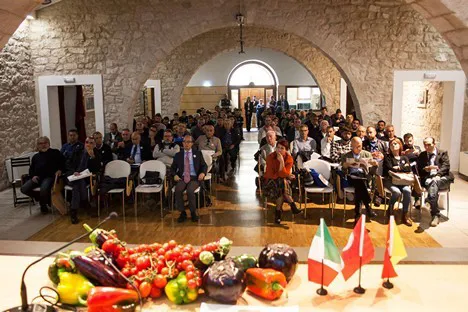In 2019, there were 2,102 hectares of greenhouses in Poland, producing 677 thousand tons of crops. Greenhouse tomatoes are grown all year around - half of them (1,037 hectares) in actual greenhouses while the rest are grown in 'non-woven fabric' polytunnels. Harvesting operations are carried out mainly in May to October. THese numbers will be discussed at the Comiso Tomato Symposium that will take place on October 29th-30th 2021. Also, possible export opportunities for Italian produce will be talked through. This will be the fourth edition of the event organized by the Agrisicilia publication and features two days of meetings, conventions, and an exhibition area dedicated to the Sicilian product.
 The partner country for 2021 will be Poland. Thanks to the presence of Bartolomiej Majda, consultant for large Polish retail chains, it will be possible to get to know the preference of Polish consumers, the country's production, recent commercial trends, and the export potential for Sicilian producers.
The partner country for 2021 will be Poland. Thanks to the presence of Bartolomiej Majda, consultant for large Polish retail chains, it will be possible to get to know the preference of Polish consumers, the country's production, recent commercial trends, and the export potential for Sicilian producers.
Artificial lighting has become increasingly popular in Poland in the past few years, though it required considerable investments in modern technologies. In Poland, the variety most cultivated in a protected environment is pink tomatoes, which are the most popular on the domestic market followed by beefsteak tomatoes, cocktail tomatoes, and different types of cherry tomatoes (yellow, chocolate).

The past three years have been very different due to recent changes, especially during the Covid-19 pandemic. Contrary to what you might expect, 2020 was actually a good year for growers, characterized by an increase in the consumption of domestic produce as imports from Spain, the Netherlands, and Turkey were impossible.
Last year, in fact, the considerable increase in the price of electricity, fertilizers, fuel (greenhouses are heated with coal in Poland), and gas made it impossible to make a profit with tomatoes. The situation is getting worse day after day, but growers have not changed their production models for 2022. Production costs are expected to double and imports from Spain and Turkey will probably increase, as their climate is more favorable. Retail purchases will also be strongly influenced by the increase in energy prices, which will penalize the production of cold countries in favor of Mediterranean countries, enabling those to export more.
